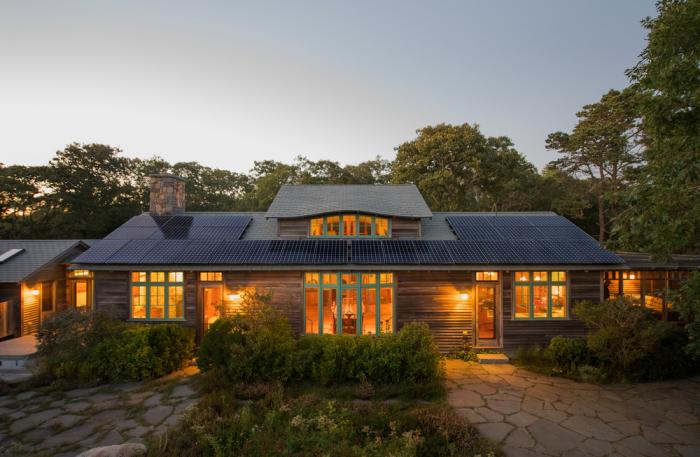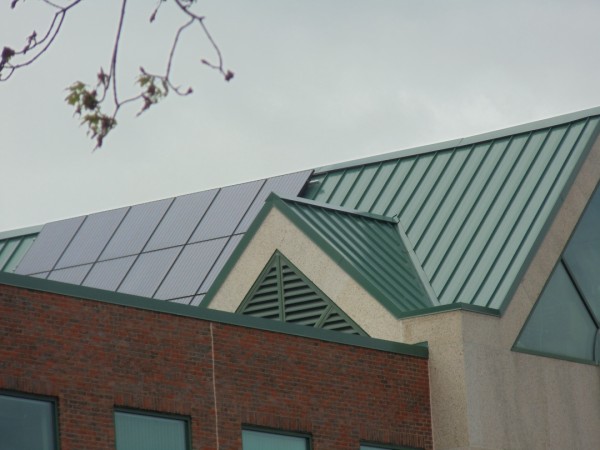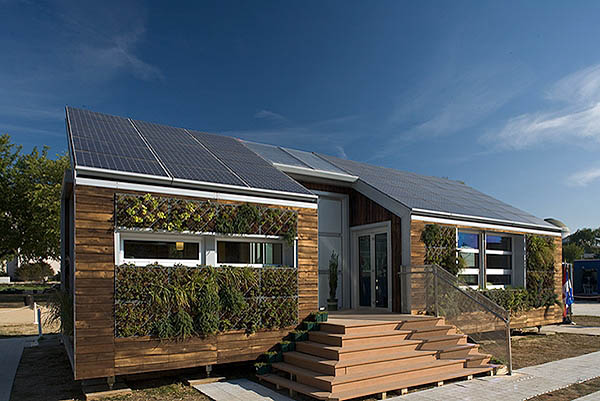In simple terms, the efficiency of a solar panel can be described as the percentage of incoming sunlight that gets converted into electricity. High efficiency modules tend to be more expensive, but they also use space more efficiently, generating more watts per square foot covered. This is a major benefit when you have limited roof space for solar panels, or when you want an installation to be as compact as possible.
 source: SunPower
source: SunPower
When comparing solar panels, keep in mind that efficiency is not equivalent to product quality. You can also find lower efficiency solar panels of great quality, in case you have ample rooftop space and want to reduce your total project cost. Do keep in mind that you will get fewer kilowatt-hours per square foot with less-efficient modules.
Here we will review the top 5 most efficient solar panels available today, and the typical costs you can expect when purchasing them. We will also highlight other strong points they offer, in addition to high efficiency. The most efficient solar panels that are commercially available range from 21% to 23%, with SunPower leading the way at 22.8% conversion efficiency.

